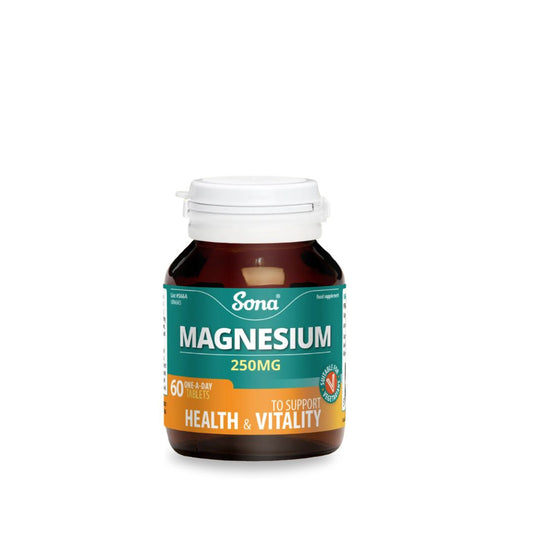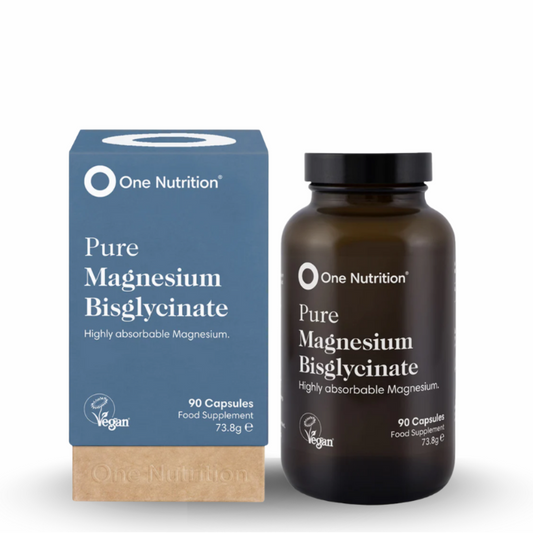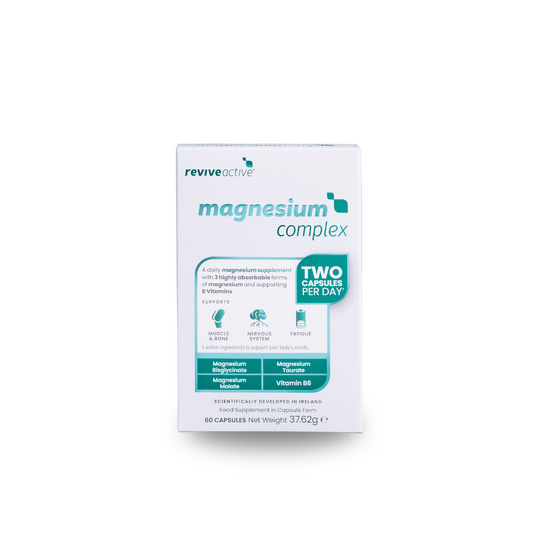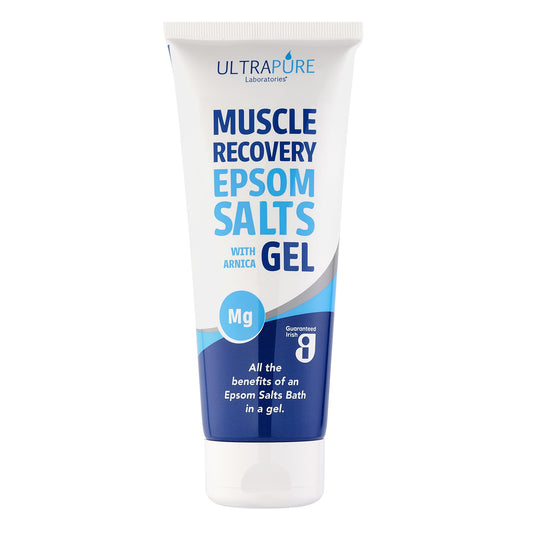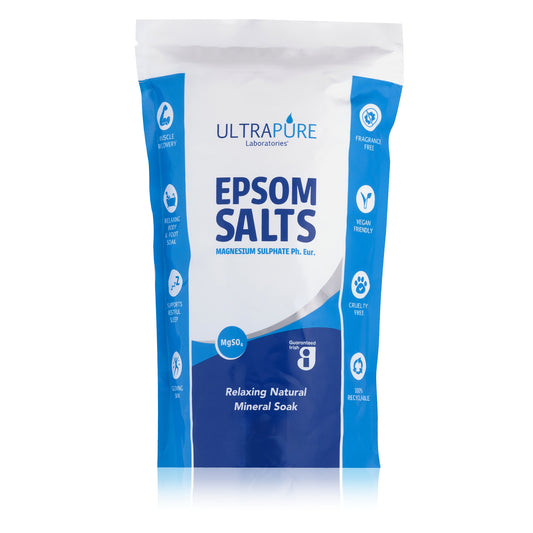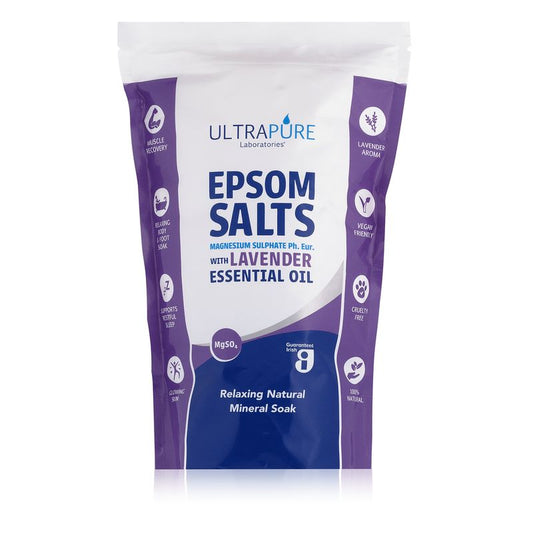
Magnesium: What are the benefits?
Share
The health and wellness space is never standing still, people are always looking for small improvements, whether that's in their diet, lifestyle or supplements to aid sporting performance or general wellness, and this year has been no different. 2025 has been a year that has seen an increased interest and attention placed upon the role magnesium plays in our body and the benefits associated with having sufficient magnesium levels. In this short blog, we will explore what makes magnesium so important, how to ensure you are consuming enough magnesium from your diet and what benefits magnesium supplementation may offer and highlighting some of the key differences of Magnesium Citrate Vs Magnesium Bisglycinate.
Why Magnesium Matters
Magnesium plays an important role in our bodies, supporting both mental and physical health and performance. It helps regulate muscle and nerve function, blood sugar levels, blood pressure, and energy production, as well as improving sleep and stress levels.
When magnesium levels are low, you might experience:
- Fatigue or low energy
- Muscle cramps or twitching
- Restlessness or difficulty sleeping
-
Increased stress or irritability
Even mild deficiencies can have a noticeable impact on how you feel day to day.
Key Benefits of Magnesium
1. Supports Energy and Reduces Fatigue
Magnesium helps convert the food you eat into energy; without sufficient magnesium, this process may be less efficient and can leave you feeling sluggish.
2. Promotes Restful Sleep
Magnesium plays an important role in rest and recovery. Magnesium helps support relaxation and regulate melatonin, the hormone responsible for sleep.
3. Eases Muscle Tension and Cramps
Magnesium plays a crucial role in muscle function. It helps prevent cramps, tightness, and soreness, especially after exercise or long days on your feet. Topical Magnesium rubs and creams can be especially helpful here.
4. Reduces Stress and Supports Mood
Low magnesium levels are linked to increased anxiety and irritability. Adequate magnesium helps regulate the body’s stress response and supports a calm, balanced mood.
5. Strengthens Bones and Heart Health
Magnesium works alongside calcium and vitamin D to support strong bones and a healthy heart rhythm.
So, How much Magnesium do you need and How to get enough?
The HSE recommends a daily intake of 270mg of magnesium for adult women and 300mg for adult men between the ages of 19-64.
As usual, the first port of call should always be your diet, and by eating a varied and balanced diet, you can help ensure adequate daily magnesium consumption. Magnesium is found in a variety of foods, such as leafy greens like spinach, nuts, seeds, wholemeal bread and legumes.
Magnesium Supplementation and Potential Benefits.
Many people do not consume a diet with sufficient magnesium, and that's where supplementation can help.
Supplementing with 400mg or less a day of magnesium from supplements can be beneficial and is unlikely to have any harmful effect; doses of more than 400mg can cause diarrhoea, so always keep this in mind.
Types of Magnesium: Citrate vs. Bisglycinate
Two of the most popular and most effective forms are magnesium citrate and magnesium bisglycinate, and both have their specific uses/advantages.
Magnesium Citrate
This form is highly bioavailable, meaning it’s easily absorbed by the body. It’s often used to support energy production, muscle function, and regular digestion. However, because it can have a mild laxative effect in some people, it’s best taken with food and in moderate doses.
Magnesium Bisglycinate
Magnesium bisglycinate (or glycinate) is bound to the amino acid glycine, which helps increase absorption and reduce the chance of stomach upset. It’s known for its calming and sleep-supporting effects, making it ideal for those managing stress, anxiety, or restlessness at night.
Choosing the right Magnesium Supplement for you:
If you are aiming to improve:
- Energy, Muscle Function, or Digestion -> Magnesium Citrate (such as Sona Magnesium 250mg tablets)
- Relaxation, Sleep Quality, or Manage Stress -> Magnesium Bisglycinate (such as One Nutrition pure magnesium bisglycinate)
- Muscle Recovery -> Topical Magnesium Rub (such as Ultrapure Magnesium rub)
- All above and more -> A Magnesium Complex (such as Revive Active Magnesium Complex)
Final Thoughts:
Magnesium is an essential mineral that plays an important role in our bodies. In 2025, we have seen an increased focus on magnesium and for good reason. I hope this blog helps clarify both the roles of magnesium and simplifies some of the differences between the different forms (i.e Magnesium Citrate vs Magnesium Bisglycinate) and how supplementing them may benefit you.
Shop our range of magnesium supplements below!
Disclaimer: Food supplements should not be used as a substitute for a varied diet and healthy lifestyle. Always consult your healthcare provider if you’re pregnant, breastfeeding, taking medication, or managing a medical condition. This content is for informational purposes only and does not constitute medical advice. Read the full disclaimer here

